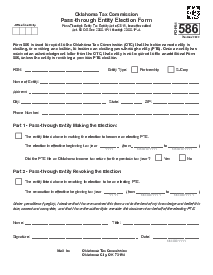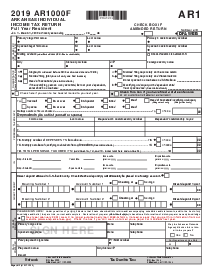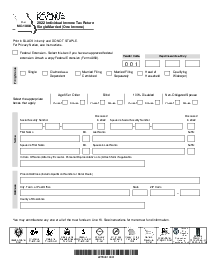-
Templates
1099 FormsAccurately report 1099 information returns and ensure IRS filing with easeExplore all templatesW-9 W-8 FormsEasily manage and share taxpayer details to streamline payments and meet IRS requirements with confidenceExplore all templatesOther Tax FormsFillable tax forms simplify and speed up your tax filing process and aid with recordkeeping.Explore all templatesReal EstateReal estate templates for all cases, from sale to rentals, save you a lot of time and effort.Explore all templatesLogisticsSimplify your trucking and logistics paperwork with our ready-to-use transportation and freight templates.Explore all templatesMedicalMedical forms help you keep patient documentation organized and secure.Explore all templatesBill of SaleBill of Sale templates streamline the transfer of ownership with clarity and protection.Explore all templatesContractsVarious contract templates ensure efficient and clear legal transactions.Explore all templatesEducationEducational forms and templates enhance the learning experience and student management.Explore all templates
-
Features
FeaturesAI-Enhanced Document Solutions for Contractor-Client Success and IRS ComplianceExplore all featuresAI Summarizer Check out the featureAI PDF summarizer makes your document workflow even faster. Ask AI to summarize PDF, assist you with tax forms, complete assignments, and more using just one tool.Sign PDF Check out the featurePDFLiner gives the opportunity to sign documents online, save them, send at once by email or print. Register now, upload your document and e-sign it onlineFill Out PDF Check out the featurePDFLiner provides different tools for filling in PDF forms. All you need is to register, upload the necessary document and start filling it out.Draw on a PDF Check out the featureDraw lines, circles, and other drawings on PDF using tools of PDFLiner online. Streamline your document editing process, speeding up your productivity
- Solutions
- Features
- Blog
- Support
- Pricing
- Log in
- Sign Up
Fillable Tennessee Form FAE 170 (2021)
Get your Tennessee Form FAE 170 (2021) in 3 easy steps
-
01 Fill and edit template
-
02 Sign it online
-
03 Export or print immediately
What Is Tennessee Form FAE 170?
When discussing the TN FAE 170 form, we're actually referring to the Tennessee Department of Revenue Form FAE 170. This is a mandatory document that incorporated businesses, LLCs, and partnerships must file annually. It's essentially a statement of the business's total assets and its net worth. The Tennessee Department of Revenue uses this to assess franchise and excise taxes owed by the respective businesses.
Who needs to fill out Tennessee tax form FAE 170?
Tennessee tax form FAE 170 should be filled by all businesses operating in the state of Tennessee. This includes corporations, limited liability companies (LLCs), partnerships, and sole proprietorships. The form is used to report and pay franchise and excise taxes.
Even if a business does not owe any tax because it didn't make a profit or was not actively conducting business, it is still required to file this form, as it acts as an annual report to the Tennessee Department of Revenue. Non-profit organizations, however, are typically exempt from having to file this form.
How to Fill Out the Form FAE 170
Filling out forms can seem daunting, especially for first-time entrepreneurs or business owners. But with these step-by-step Tennessee form FAE 170 instructions, the task becomes less overwhelming:
- Start by indicating the Tax Year Beginning and Tax Year Ending in the provided boxes.
- Enter the Account Number, FEIN (Federal Employer Identification Number), NAICS (North American Industry Classification System) code, and SOS (Secretary of State) Control Number in the respective fields.
- Fill in your Legal Name and Mailing Address, including City, State, and ZIP Code.
- Specify the Date when your Tennessee operations began.
- Proceed to Schedule A and calculate your Franchise Tax. Enter relevant data into lines 1 through 7 to compute your Total Franchise Tax. Include valued assets, equity capital, or dividends in the calculation.
- On Schedule B, compute your Excise Tax. Fill in lines 1 to 5, remembering to add in your Net Earnings from Line 1, Schedule J, and multiply line 1 by 6.5% as specified on the form.
- Navigate to Schedule C to compute your Total Tax Due. Enter your Franchise Tax and Excise Tax to find out your total tax due or any overpayment.
- Fill in the tax credits details in Schedule D.
- In Schedule E, provide the details regarding the installment payments.
- In Schedule F1 and F2, provide information about Non-Consolidated and Consolidated net worth respectively.
- In Schedule G, H, and J1, J2, J3, J4 provide the required details about Real and Tangible Property, Gross Receipts, and Computation of Net Earnings based on your entity status.
- Schedule J is for the computation of Net Earnings Subject to Excise Tax. Input your Net Earnings after the reductions from Schedule A, such as Dividend Deduction.
- Schedule K, M, and N are for computation of Loss Carryover Available, Nonbusiness Earnings Allocation, and Standard Apportionment respectively.
- Use Schedule O, P, R and S to calculate and specify your Apportionment if you're a Common Carrier, Air Carrier, or Manufacturer Single Sales Factor, calculate accordingly.
- In Schedule T, specify the tax credit for Industrial Machinery and Research and Development Equipment. It also carries over to Schedule V.
- Schedule U is to record your Loss Carryover. Fill in the amounts of loss from each tax year.
- Fill in your name, sign, and date the Taxpayer's Signature section.
- If a tax preparer is used, they must fill in their information in the designated areas; their signature, PTIN, the date, and contact details, including phone number, email, and their physical address.
- Review the form thoroughly, and submit the form to the Tennessee Department of Revenue.
Remember to keep a copy of the form FAE 173 for your records.
Deadline for the TN FAE 170 form
The Tennessee form FAE 170 should be filed annually. Typically, the due date for annual filing is the 15th day of the fourth month following the end of a business's financial year. For most businesses that observe the regular calendar year (January to December), the Form FAE 170 filing deadline is April 15th.
If the due date falls on a weekend or a legal holiday, the form and payment are due on the next business day. Late filing can result in penalties and interest, so it's crucial to be mindful of these dates. Additionally, suppose a business needs additional time to prepare the return. In that case, Tennessee provides an automatic extension of time to file but not an extension of time to pay the tax due. Therefore, payments should be made by the original due date to avoid interest and penalties.
Remember, even if no tax is due, the form still needs to be filed to avoid potential penalties. Regular and timely filing demonstrates the ongoing validity of your business to the Tennessee Department of Revenue.
Fillable online Tennessee Form FAE 170 (2021)



































































